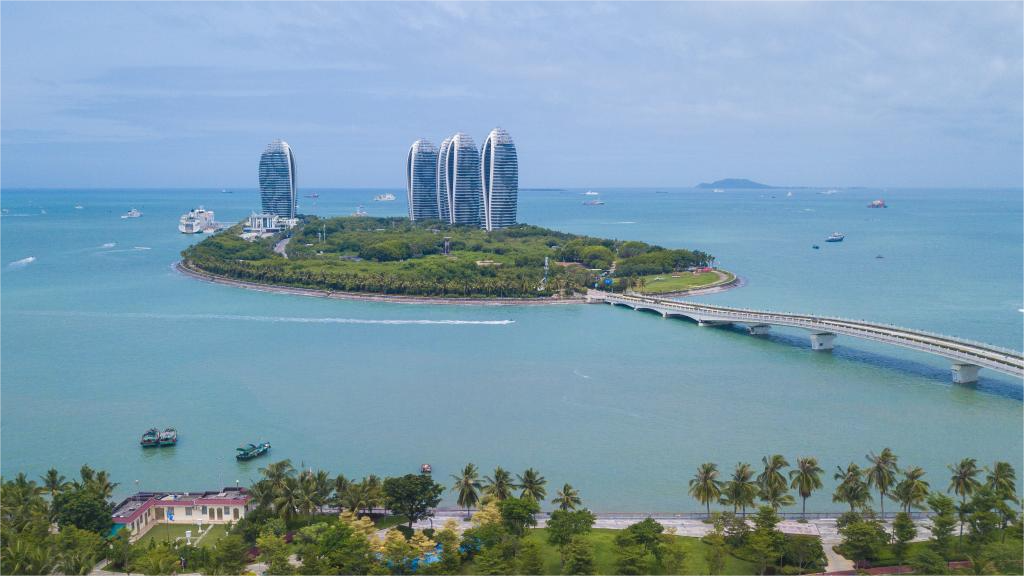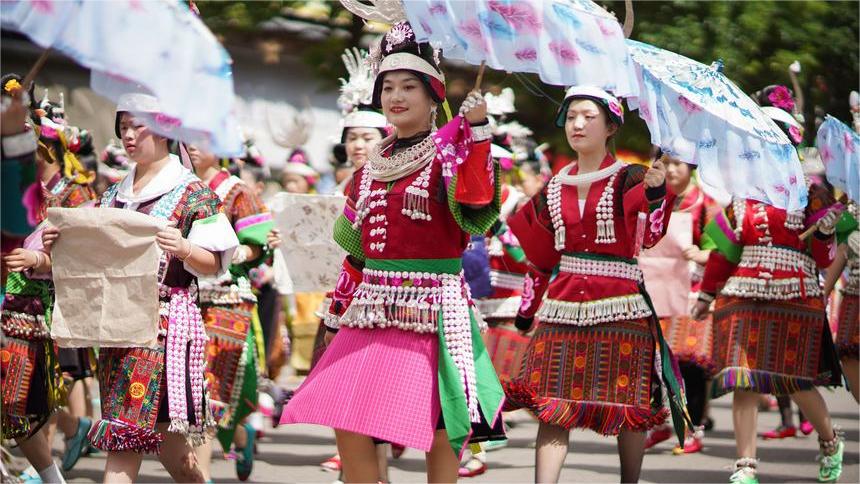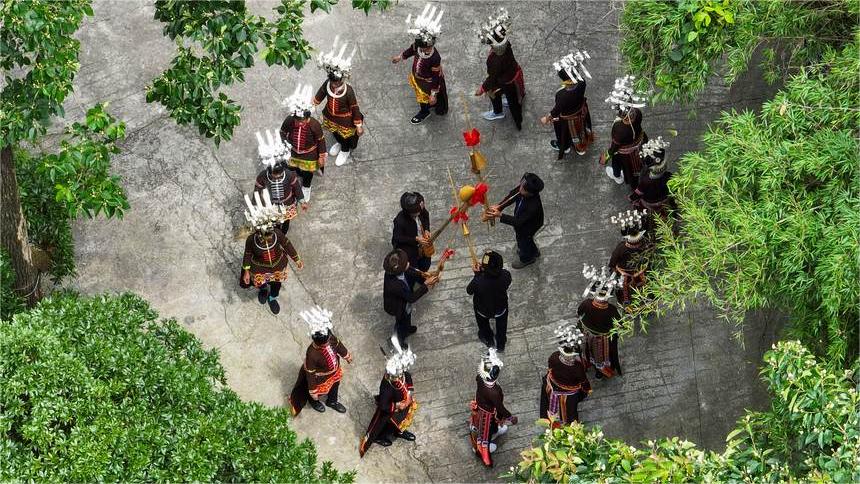Chinese people embrace science craze during summer vacations
BEIJING, July 26 (Xinhua) -- Many travelers in China this summer are seeking to shake things up a bit, exploring vacation options in the world of science and technology. This reflects a growing fascination with all things scientific in the country.
In Beijing, holiday-makers have been enjoying a "cooling" break from the scorching heat thanks to science exhibits with a polar twist. Visitors at the National Museum of China have been exploring an exhibition on the country's polar expeditions, pausing to marvel at a display of ice cores and meteorites from the Antarctic.
At the other end of the scale, some people are heading to the beach not to cool off, but to witness the fiery spectacle of space travel. Travel agencies are receiving numerous bookings for Haiyang, a coastal city in east China's Shandong Province, where an offshore rocket launch is scheduled to take place in August.
The north-western provinces, known for their cool summer climate, have witnessed a similar growing interest in space science. While grasslands, grottoes, and the Great Wall have long been popular tourist attractions here, tens of thousands of people now flock to the area for a unique experience -- a simulated Martian habitat on the edge of the Gobi Desert that offers visitors a taste of life on the red planet.
SCI-TECH BUSINESS
Meanwhile, sci-tech enterprises across China are increasingly seeing the money-making possibilities in the country's travel boom.
In Hefei, capital city of Anhui Province, leading artificial intelligence company Iflytek has launched study tour programs aimed at showcasing its voice-recognition tools and robots to teenagers. And the Hangzhou-based electric vehicle manufacturer Geely has partnered with travel agencies to open its workshops to visitors nationwide, showcasing the manufacturing process of its new energy cars.
Big high-tech industrial projects have also drawn their share of visitors. In Dunhuang, Gansu Province, a molten-salt solar thermal power station dubbed the "super powerplant in the desert," has become a popular tourist destination, offering a stark contrast to the city's millennium-old cultural relics. Social media platforms have been flooded with breathtaking drone photos of this impressive structure, which consists of 12,000 mirrors and covers an area equivalent to 780 football fields.
Local officials are optimistic that the thriving science-themed tourism industry will drive economic growth. For instance, in northwest China's Jinta County, near the Jiuquan Satellite Launch Center, the local government has recently unveiled a comprehensive plan to construct a space tourism complex that offers space exhibitions, science education, science fiction entertainment and sightseeing services. Facilities such as hotels and restaurants are also being expanded to support the construction of a "space town."
THIRST FOR KNOWLEDGE
Many universities and research institutes have also been embracing the trend of science-themed tourism.
Beihang University is among them, attracting visitors by displaying its latest sci-tech achievements. The university's museum, known as the Beijing Air and Space Museum, will soon exhibit a range of space-related artifacts, including taikonaut Gui Haichao's space suit, as well as the return capsule and parachute used during his space journey. Gui is a professor at Beihang, and in 2023, he became China's first payload specialist to fly to the country's space station.
As the school summer vacations get underway, universities in Hubei Province and institutions under the Chinese Academy of Sciences in Jilin Province, which were originally supposed to close their campuses, have now opened their facilities and key labs for students and parents who are eager to enrich their science education.
There are some good options also for moviegoers, with cinemas showing two Chinese films about Earth science this summer. Although they have less showtime than cartoons and comedies, they still represent a significant milestone, marking the first release of domestic science films since 2000.
Despite her tight travel schedule, Xiao Heng from Changsha, Hunan Province, has brought her 8-year-old son to watch the film on their trip to Beijing. She said watching such a science film was as educational as taking a class to acquire knowledge.
Ancient Chinese considered traveling as important as reading for acquiring knowledge. In the past, the preference was for cultural destinations that might enhance literary quality. These days, many people, especially parents like Xiao, see vacations as valuable opportunities to gain scientific knowledge.
CUTTING-EDGE ACHIEVEMENTS
The trend is partly due to China's rapid advancements in science and technology. Han Guojun, a leading expert at Beihang's museum, said that the number of visitors in 2023 exceeded that of the pre-COVID year of 2019 by 30,000, and the surge coincided with the country's remarkable progress in space exploration, from extensive rocket launches to the construction of the Tiangong space station.
"The public needs a better understanding of our country's cutting-edge achievements in aerospace," Han said, adding that visiting a space-themed museum filled with numerous spacecraft models and collections is an excellent choice.
On Tuesday, he guided a group of 160 teenagers from Hong Kong, who were on a space-themed trip across the country. Organizers said that the purpose was to provide Hong Kong youth with a deeper understanding of the advancements in space exploration made by the motherland.
STUDY TOURS
Feng Ying leads a travel agency in Liaoning Province that organizes study tours nationwide. She said that more parents are now willing to enroll their children in tour programs offered by tech companies. Despite the high costs of these study tours, which can be priced at hundreds of yuan for just half a day, most parents do not hesitate to invest in them.
The participation of sci-tech enterprises and institutions in this new travel trend brings two-way benefits. Iflytek told Xinhua that its involvement in study tours is not driven by profits, but is linked with a desire to promote new products and engage with customers.
Tours provide teenagers with a practical understanding of how the technical terms they often hear in daily news -- like AI models and voice recognition -- are applied in real-life situations, according to Iflytek.
STRATEGIC CHOICE
China regards education, science and technology, and talent function as basic and strategic pillars for its modernization. A resolution on further deepening reform comprehensively to advance Chinese modernization, which was adopted at the third plenary session of the 20th Central Committee of the Communist Party of China held last week, highlights the crucial role of universities, research institutions, high-tech enterprises and national laboratories in strengthening the country's strategic science and technology capabilities.
"With a focus on advancing the frontiers of global science and technology, and the government's commitment to promoting China's development through science and education, there has been a surge in the demand for scientific knowledge," said Wei Xiang, a researcher at the Chinese Academy of Social Sciences.
He said he believes that the combination of learning and travel can effectively cater to the public's needs, and it is evident that science and technology are poised to become a future direction of the Chinese tourism market.
(Guo Xinyu and Li Yilin also contributed to the story.)
Photos
Related Stories
- China's diversified educational system empowering dreams of millions
- China sees progress on education in basic disciplines over 15 years
- Dream-building workshop plants seeds of science curiosity
- China reports 2023 education spending in excess of 900 billion U.S. dollars
- China to enhance patriotic, socialist education among college students
- Top political advisor highlights religious, ethnic harmony
Copyright © 2024 People's Daily Online. All Rights Reserved.









